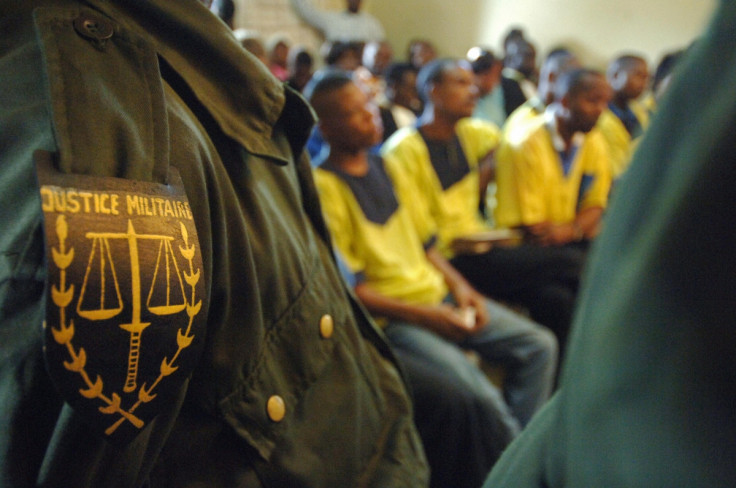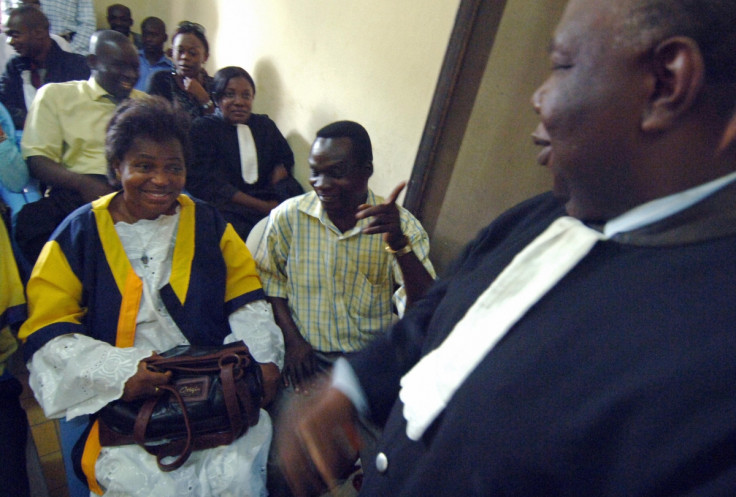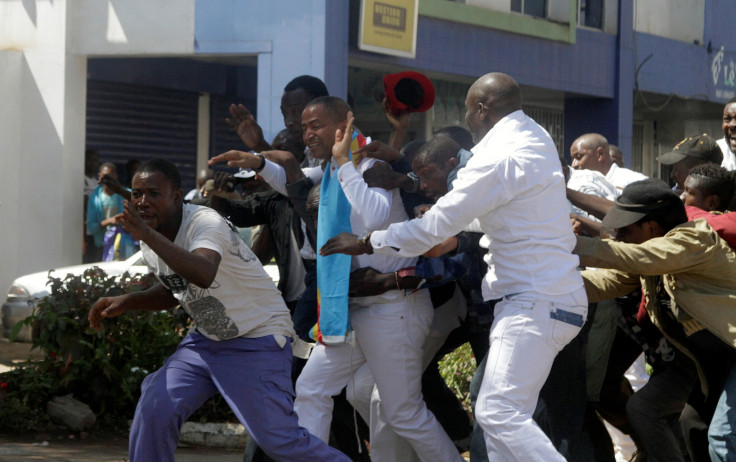DRC rival leader Moise Katumbi charged: 'A system of individualised justice manned by Kabila'

The government of the Democratic Republic of Congo (DRC), which has been accused of "neutralising" and removing from the race opponent and presidential candidate Moise Katumbi, is no stranger to initiating farcical proceedings against its political rivals.
On Thursday (19 May 2016), a government spokesman said Katumbi had been charged with hiring foreign mercenaries and plotting against President Joseph Kabila, and could now either be jailed or put under house arrest.
Presidential elections are due to be held in November 2016, but President Joseph Kabila has not commented publicly on whether he plans to step down when his second term expires, as he is required to do by the constitution.
On 11 May, the DRC's Constitutional Court declared that under Article 70, Kabila could remain in power beyond the end of his mandate if elections do not go ahead in November.
Framing political opposition
While a picture of the president hangs prominently in many office buildings, opposition candidates find themselves framed in very different ways.
Some 10 years ago, Marie-Thérèse Nlandu, of the Congo Pax party, was one of the 300 people linked to the opposition that were arbitrarily arrested and imprisoned in Kinshasa. Along with nine others, the lawyer and former opposition presidential candidate, who was also tried by a military tribunal and faced up to 20 years imprisonment, was tried for organising an insurgency.
"They had accused me of creating a political movement to overthrow the government, they accused me of having arms – which was totally false. It was very serious. The United States Embassy got involved," she exclusively told IBTimes UK.
While rights groups condemned the proceedings, the case against Nlandu, her driver, her press attaché and the other co-accused was not established, the head of the court, Major Mboloko Ewawa, declared at the end of the four-month trial. The accused were all acquitted.
Nlandu was released on 30 April. However, the presiding judge She fled abroad after the state appealed her acquittal.

Threat of arbitrary arrests
During the night of 31 April 2013, four members of Nlandu's family were "arbitrarily arrested and detained" after she claimed the security services turned up at her residence in Kinshasa to look for her. Family members included two of Nlandu's nephews and a brother-in-law. The house was ransacked.
Nlandu explained the individuals were first "beaten" by heavily armed officers in uniform before they were taken away in a number of vehicles she claims belonged to the government's powerful intelligence agency Agence Nationale des Renseignements (ANR). They were detained for a week at the ANR before their release, which the politician claims was hastened following pressure from the international community.
In an April 2007 open letter to Kabila, the president of the Association of the Bar of the City of New York, Barry Kamins, expressed his concerns over Nlandu's case. "The Bar is concerned that Ms Nlandu's detention and trial is not in accordance with Congolese and international law. Given the serious nature of this matter, the Bar respectfully urges to you to take all necessary measures to ensure that Ms Nlandu is released or, at a minimum, that she receives a fair trial by an independent civilian court," the letter read.
International sanctions 'not enough'
"These were completely arbitrary arrests. Ten years after I was wrongly accused, nothing has changed – if it had I wouldn't be living in exile. It is actually far worse today," Nlandu said on the phone.
"There is no more justice. It is a system of individualised justice manned by Kabila. It can attest of it because I fell victim of it. Magistrates are supposed to be independent, but this independence is costly: a magistrate can be arrested or killed if he is seen as being too independent. Today, the entire system is concentrated in the hands of Kabila, and operates like tiny feudal system," Nlandu said.
In one of the highest profile cases in the DRC judicial history, six pro-democracy activists from the anti-government Lutte pour Le Changement (Lucha) movement were handed six-month prison sentences by the Goma Court of Appeal in March.
They were jailed as part of a government crackdown on activists calling on the president to step down from power when his mandate expires at the end of this year. Their jailing, described as an "injustice" by Lucha, was also roundly criticised by the US, Belgium and France, as well as international human rights organisations.
"Their arrest is part of the same problem, because the only thing these youths want is alternance [political changeover], and democracy. But calling for alternance means asking Kabila to leave – and Kabila does not accept it."
IBTimes UK on 11 May revealed that senior DRC officials could face the imposition of sanctions led by the US if Kabila stays in power beyond his electoral mandate, which expires in December. Nlandu welcomed the move, but urged more to be done to ensure elections, and a peaceful changeover are carried out in time.
"Its not enough to threaten of imposing sanctions, they need to ask him to step down, and leave," the leader said.
19 December is the cut off date, and Nlandu anticipates that, if elections are not held, Congo may descend into violence. "How many will die? It will be too late to say that things are not going well. Now is the time to stop the worst from happening."

© Copyright IBTimes 2025. All rights reserved.






















